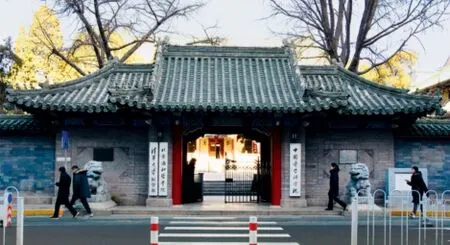MEDICINE, MISSIONARIES,AND MANCHU PRINCES
2020-06-19
The founding of the Peking Union Medical College
In central Beijing, a small cluster of European-style villas is set apart both in style and by a stout wall from the crowded courtyards of the surrounding hutongs. A century ago,these were the residences of faculty and researchers attached to the Peking Union Medical College.
Opened on a winter day in 1906,the Union Medical College was supported by an alliance of American and British missionary societies,who entrusted the school to British physician Dr. Thomas Cochrane.Dr. Cochrane also brought with him a small grant from the imperial court, with which he had a special relationship after successfully treating Li Lianying, loyal eunuch of the Empress Dowager Cixi.
In the decades that followed,many international organizations expressed interest in building medical schools, universities,and hospitals in the Republic of China. The Rockefeller Foundation,started in New York in 1913 by oil baron John D. Rockefeller,organized a commission to explore opportunities for developing the study of medicine in China. After evaluating the country’s 17 existing medical schools, they decided that “The Union Medical College at Peking, while its organization is not wholly satisfactory, appears to be more firmly established and better supported than any other missionary institution in the country.”

Pavilions in the prince's mansion were replaced by new structures built in a traditional style before the college opened in 1921
In 1915, the foundation’s China Medical Board purchased the old Union Medical College for 200,000 USD. With an eye toward expansion, the foundation also purchased a large tract of land close to the college. The property had been a palace belonging to the descendants of Dodo, the Prince of Yu, one of the Manchu founders of the Qing dynasty whose family had since fallen on hard times.
On September 15, 1921, a grand ceremony attended by over 300 guests officially opened the new Peking Union Medical College.Between 1921 and 1949, the college graduated over 300 doctors, half of whom continued their training overseas. The school became a leading research center in Asia for biochemistry, pharmacology, and epidemiology. Nationalized in 1951,the school was closed during the political upheavals of the 1960s. It reopened in 1979, and today is one of the most prestigious medical schools in China. - J.J.
